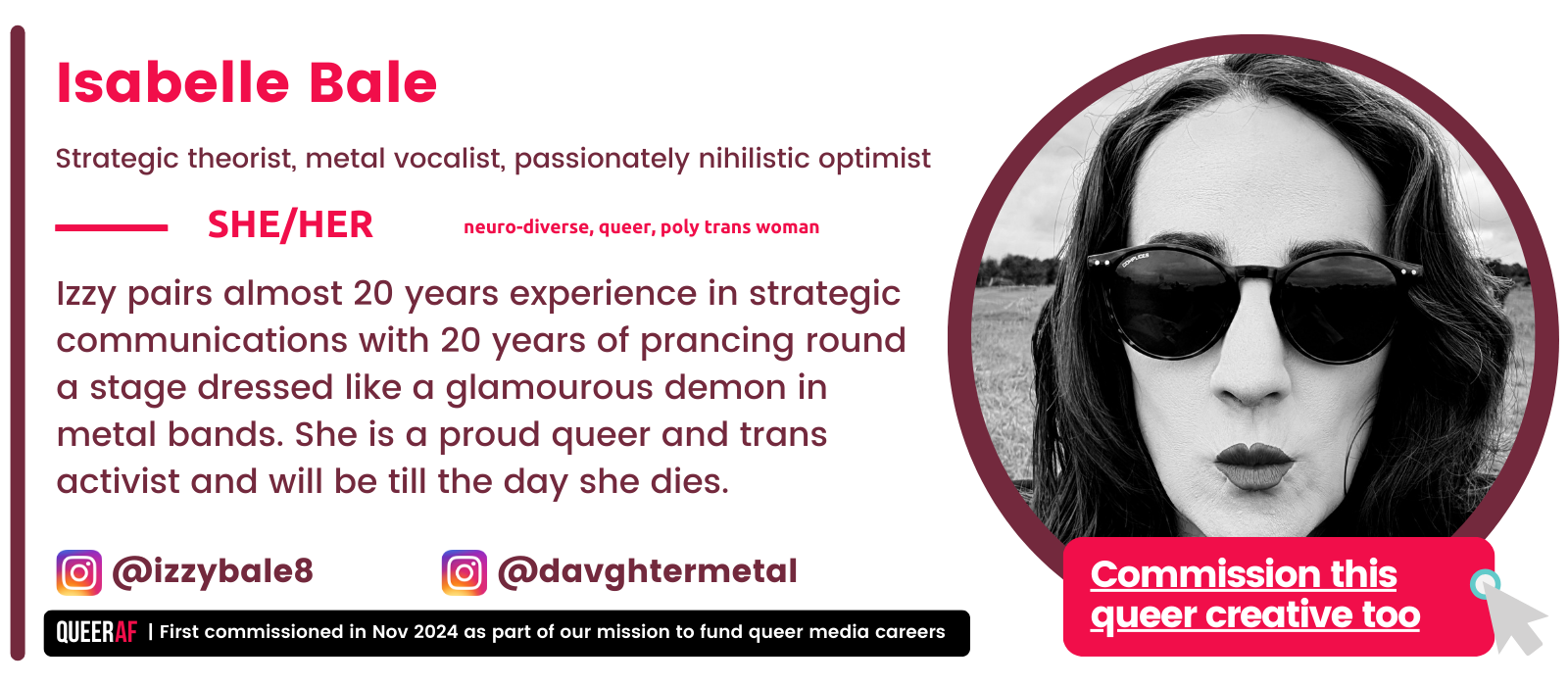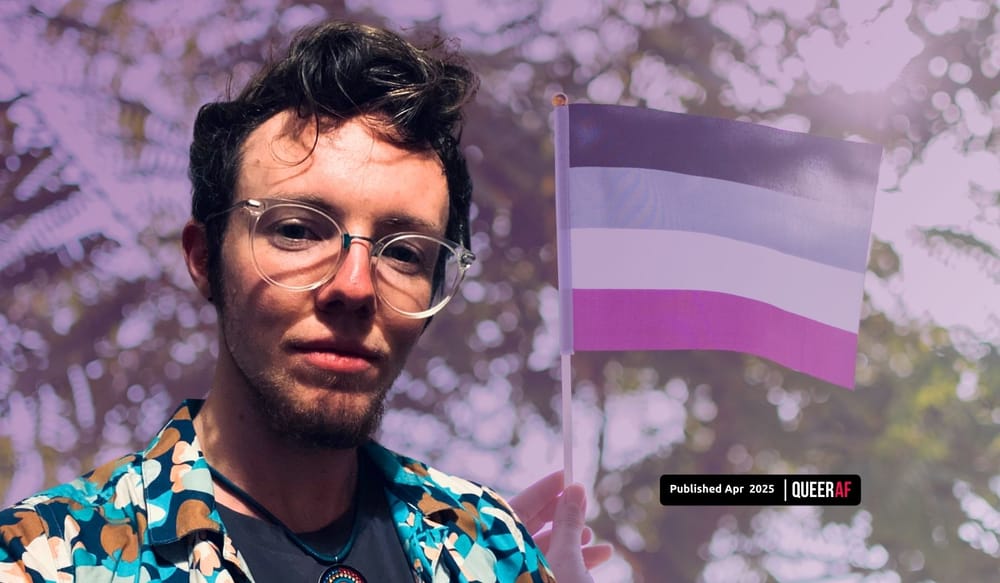This article was produced with our launchpad project Trans+ History Week, which just announced it's 2025 dates as 05-11 May.

Every time I go to Berlin, there is one place I go. It's a tiny, unkept garden in an out of the way part of the Tiergarten, in the heart of the city’s posh tourist district.
However, it connects me to my trans history more than anywhere in the world. It’s just a small, brass plaque, nothing impressive or bold.
A plaque that commemorates the location of the Magnus Hirschfeld Institut für Sexualwissenschaf (Institute for Sexual Science).
While Weimar era Berlin was perhaps liberal for the time around Eldorado, the famous queer nightclub with its “Hier ist’s Richtig!” sign lighting the way), it was nevertheless a challenging period for trans people.
The Institute for Sexual Science was often a refuge from abuse as much as it was also a hospital. While staff performed gender-affirming surgery and provided healthcare, they also offered paid and free lodgings and gave transgender people jobs (mostly as maids and secretaries) when employment outside those walls would have been incredibly difficult. It represented freedom in more ways than one.
In addition, Dora Richter, the first woman known to have undergone MTF gender-affirming surgery, had her surgery at the institute, as did Lili Elbe, the painter and subject of the book and film The Danish Girl.
Yet over four nights in 1933 starting on May 6th, which is now celebrated as Trans+ History Day, it was all ripped away.
Led by a loud and brash brass band, hundreds of right-wing Nazi-supporting students marched down the street holding torches, like something out of Frankenstein, ready to burn the monsters. They broke in and looted the building from top to bottom. For four days, anything of value was stolen, and the rest was destroyed.
On May 10th, they burnt over 16,000 books on sexuality and trans healthcare in the streets, alongside the writings of socialist and Jewish authors as well as others seen as ‘un-German’.
With those flames, ended what had been the world's first centre for “research, medical care and a refuge for those shunned by society because of their sexuality.”
But that’s not where the story ends. The books may have been burnt, the building destroyed, but we’re still here.
As I sit on the bench in the Tiergarten, joggers and dog walkers don't even notice the plaque. It is a cenotaph to all those LGBTQIA+ people we have lost through a lack of acceptance and healthcare.
More than that, it is also a reminder of all the hope and the community we share. Sitting there, I’ve never not been brought to tears.
When the UK government renewed the ban on puberty blockers for trans kids, they added advice on how to access mental health support in the NHS. Despite refuting the link between puberty blockers and suicide prevention, they know all too well what will happen as a result of that ban.
In 2024, Trans+ people face multi year waiting lists for appointments. We may not be burning books and buildings, but healthcare and support is being removed just as quickly as in 1933.
Today in Berlin, sitting on my bench next to that plaque, I cried. Right now we all know the pain of being shunned by society and the fear of having our healthcare removed.
But we must remember our history because then, just like now - we survived. We are still here. As we look back on our shared trans history, we should be grateful to the roles played by Dr. Hirschfeld pioneers, such as Lili and Dora. We should be thankful to all those who offered refuge and care in 1933 and those who still do today.
The plaque in the Tiergarten is a painful and beautiful reminder that the last time they came for us, it may have looked a lot like today. Yet, we have always existed.
No matter what is thrown our way, we have our community, and we will always survive.

Get the Queer Gaze in your inbox each week with our free weekly newsletter or pitch to write an edition for us now.
Why we archived our Twitter account
We refuse to give more energy, data or traffic to Elon Musk - so we archived our X account.
Twitter was once a source of news that no one else was talking about. A place for the LGBTQIA+ community to coalesce and build movements. Somewhere for the queer sector to get their news out. That Twitter is long gone.
Since Musk bought the platform, it has moved from a platform with standard issues to one that has fuelled the most pervasive of hate campaigns. Campaigns that may seem grassroots but are instead run by bots and right-wing think tanks that have promoted the most fringe views into the mainstream. A far more sinister agenda is at play.
We've been preparing for this shift for some time, but the election - and Trump appointing Musk to a murky quasi-government role sealed the deal.
Launching our Bluesky account saw it grow faster than any account we've had before; it tells me just how much of a difference it makes to be on a platform prioritising safety and wellbeing.
Rather than having to monitor replies, the handful of hate comments we've got so far have been labelled as such and hidden from view. Blocks actually mean blocks. You can unlink quote posts to reduce the impact of pile ons.
The platform is far from perfect and not as open as other platforms on the federated web - but for now, we're embracing our role as the only verified LGBTQIA+ publisher on the platform's news feed.
But I'll level with you. Building an audience in a new platform takes a great deal of time and energy.
Losing X as one of our once most valuable places to build our newsletter audience means we need your help to invest in new ways to grow and help more people understand the LGBTQIA+ news.
We need you to join 320+ QueerAF members, and help us grow - if only as a queer as f**k middle finger to Musk's right-wing agenda.











